THERE’S a reason why people involved in the world of extreme sports – skateboarders, rollerbladers, BMX riders, etc. – are often portrayed as rebels.
“If they didn’t act like rebels, people wouldn’t listen to them!” said rollerblader Ahmad Firdauz Azhar, 34.
But things have been slowly changing in the extreme sports scene in Malaysia, according to the trio behind Initiative, a collective of athletes and enthusiasts founded by Firdauz, skateboarder Munir Muhammad, 27, and BMX rider Shahrul Reezwan, 29.
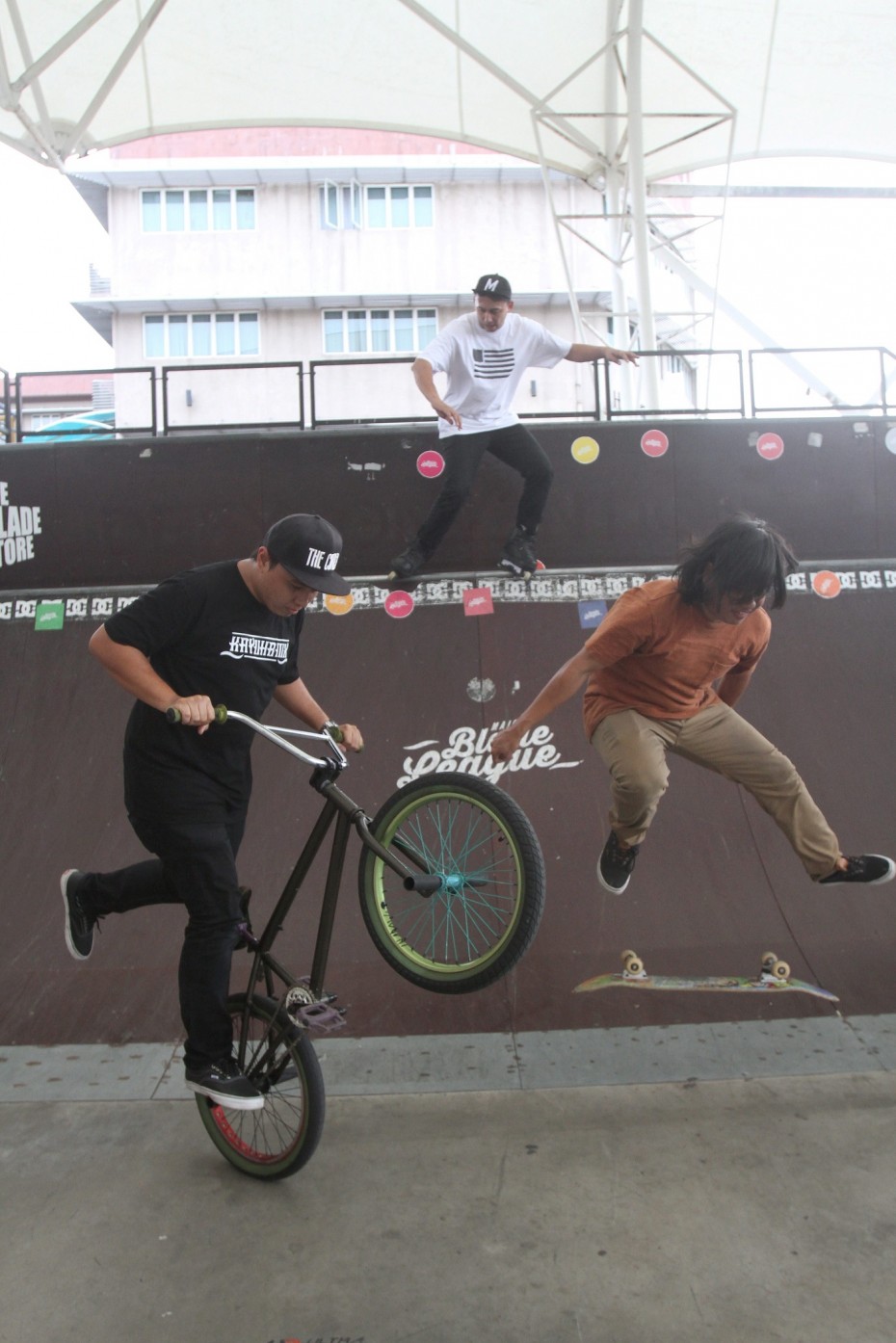
To the extreme: (From left) Bicycle motorcross (BMX) rider Shahrul Reezwan, rollerblader Ahmad Firdauz Azhar and skateboarder Munir Muhammad founded INITIATIVE earlier this year to devellop the action sports community in Malaysia through programmes like competitions, tours and events. Photo: M.AZHAR ARIF/ The Star
These days, kids involved in the sport aren’t the sullen, destructive rebels they used to be stereotyped as (thanks for nothing, Avril Lavigne). According to Firdauz, most of them are good kids who do well at school, and they’re serious about the sport.
And that’s why they’ve set up Initiative, to organise development programmes such as competitions, tours, workshops and events to give these kids a chance to take their love for the sport to the next level.
For now, Initiative focuses on skateboarding, rollerblading and BMX because they share a common ground, literally, because they can all perform together on skate parks. But in the future, they hope to represent other action and extreme sports, and unite all their communities.
“We’ve been in the industry for about 15 years, and people always talk about doing events, but it never happens,” said Firdauz.
“Even when they do happen, it’s on a small scale. That’s probably why the sport didn’t get as much coverage compared to other sports. It just went dark in the mid 2000s.”
In the past five to ten years, Firdauz reckons the number of kids at skate parks and extreme sports events has doubled.
A lack of proper facilities was an issue, but according to Munir, there are now five skate parks in the Klang Valley, though accessibility for kids is still an issue. But on that note, the guys believe parents are starting to be open to their kids taking part in extreme sports, because they see them dropping their kids off at skate parks these days, which almost never happened when they were starting out.
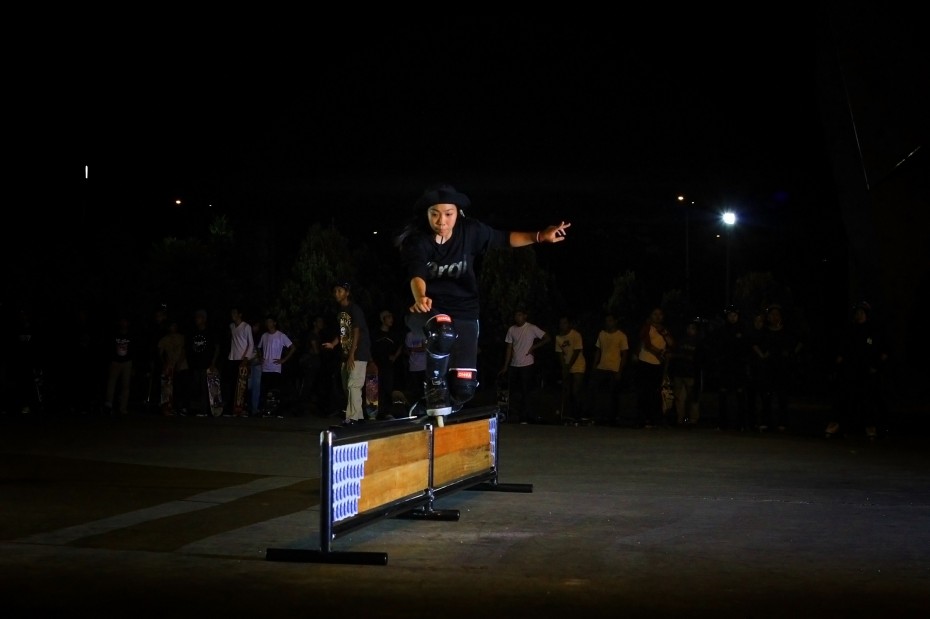
Since it started early this year, Initiative has been involved in three events including a yearly skating event, GrindBaru 6 and global awareness campaign Skate4Cancer with Rob Dyer. Photo: NAZHAT
The perception that such sports are dangerous is slowly fading as the athletes continue to learn more about safety, so now the primary barrier to get started is entry cost.
When someone picks up a sport like skateboarding or inline skating, it’s imperative to get proper equipment – especially protective gear. It’ll set you back around RM500-800.
But with a constant line-up of around 20 competitions throughout the year, the athletes could make a decent buck.
You could win up to RM3,000 at locally organised competitions these days, and up to RM6,500 at international event franchises brought to Malaysia, like the Festival International Sports Extreme (FISE) World Series Malaysia 2014. Of course, if you compete overseas, you could be earning much, much more.
Big backers
A lot of companies and brands are starting to realise the potential in the local extreme sports community. According to Initiative, it isn’t hard to find corporate sponsors for local extreme sports events.
Initiative has organised three sponsored events since they were formed in January, including one for Skate4Cancer, a global campaign to raise awareness about early cancer detection. The Initiative was engaged by iM4U to organise competitions in conjunction with the visit of Skate4Cancer founder Rob Dyer.
They also do video production, a huge area of development in extreme sports. Talents have also been getting a lot of corporate support, particularly from extreme sports equipment and apparel brands.
Popular Malaysian skateboarders Nizam Lee and Pa’din Musa are sponsored by DC Shoes and Vans Malaysia respectively.
Initiative are now turning their sights on organising more league competitions with the help of their sponsors, as they feel this will help sustain interest throughout a season.
The Major Blade League (MBL), started by Firdauz’s brand DoshieSkates in 2012, has been a huge success so far.
The first season (2013/14) had 80 participants, while the second season had 90. Season three kicked off last weekend, and the winner of the league will be bagging RM2,000 – on top of all the cash prizes they win at different tournaments throughout the season.
Inspired by MBL’s success, KayuhBMX (a community project founded by Shahrul) will be launching its own BMX league, the 20 Inch Cup, at X-Fest 2015 on April 25.
Besides that, Initiative are working on organising more competitions and skate tours in other cities, developing talent and building skate parks with better designs. After that, they will look into providing coaching for young enthusiasts. According to Munir, there are now kids as young as eight trying out extreme sports.
Creative sport
Because they have always been cast as outsiders, the extreme sports community has created its own sense of style – and their own eco-system of businesses.
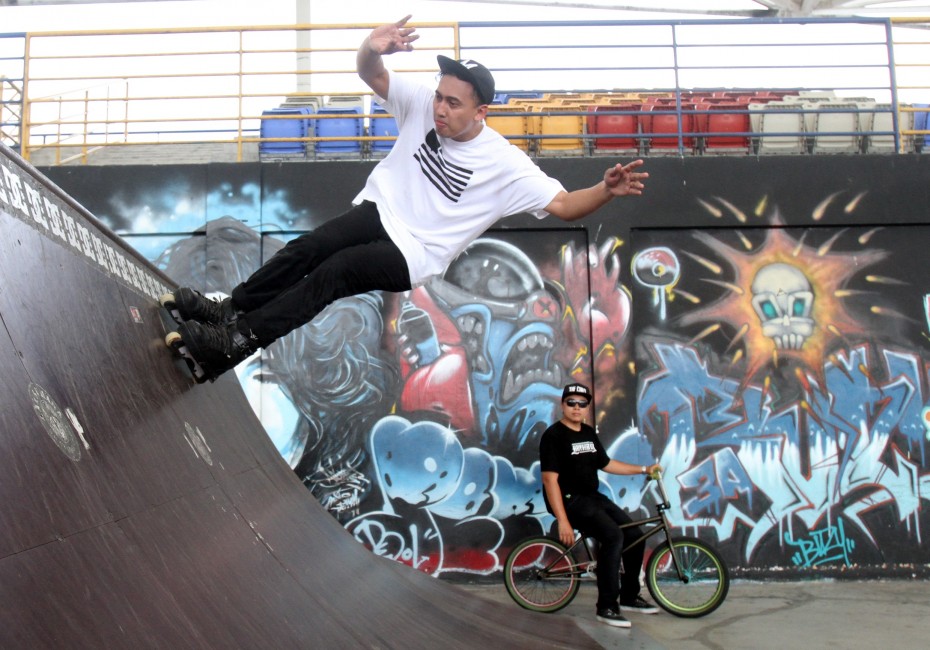
Firdauz revealed that lack of participation is one of the reasons why action sports didn’t get as much attention compared to other sports. ” We need to make everybody feel like they belong,” he said. M. Azhar Arif/The Star 09 Apr 2015
And that’s what really sets it apart from other sports. There are extreme sports photographers, videographers, merchandise retailers and so on, and they all create stuff that is uniquely extreme.
Munir believes this encourages creativity and a sense of entrepreneurship among young people on a level no other sport can provide.
Initiative has been providing skaters, bladers and BMX riders interested in photography or videography the opportunity to work at their events.
It’s a win-win-win situation – the enthusiasts get to earn some money developing their production skills, Initiative gets a production crew that understands the sport, and the community grows as a whole.
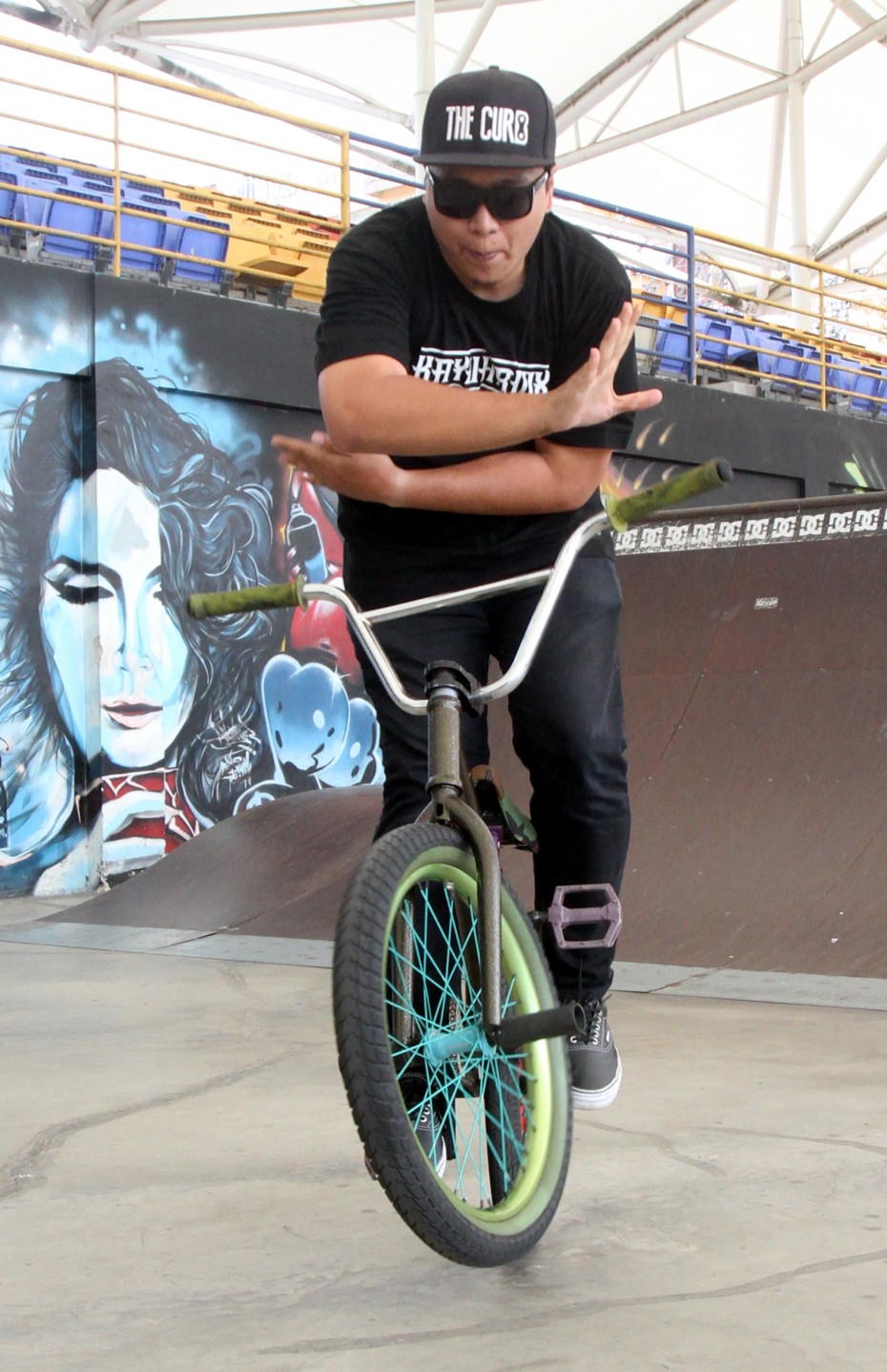
Shahrul Reezwan started BMX riding at the age of 16. Now, the 29-year-old has his own bicycle shop. “When I started, there wasn’t any shop in Malaysia selling BMX equipment and bicycle parts. So I took the initiative to start one on my own and riders can easily purchase them instead of ordering online,” said Shahrul. Here, he is doing a bar spin on his bicycle. M. Azhar Arif/The Star 09 Apr 2015
In terms of entrepreneurship, Firdauz, Munir and Shahrul all run their own stores and they employ young athletes to work with them.
With extreme sports being such a non-mainstream sport, the local community has mostly taken it upon themselves to make things happen.
Firdauz’s inline skate shop, The Blade Store, imports major international brands. Munir also has his own brand of skateboards, Sibling Skateboards, which produces affordable gear, while Shahrul has a bicycle shop called The Curb.
Firdauz said: “Because its an alternative lifestyle, extreme sports teaches athletes to find a way to survive and adapt in the world.”
“We go to school to look for answers in books. But every time you skate and learn a new trick, you don’t have books to guide you. You have to learn yourself. When that process is applied in real life, these kids will have a more positive outlook.”
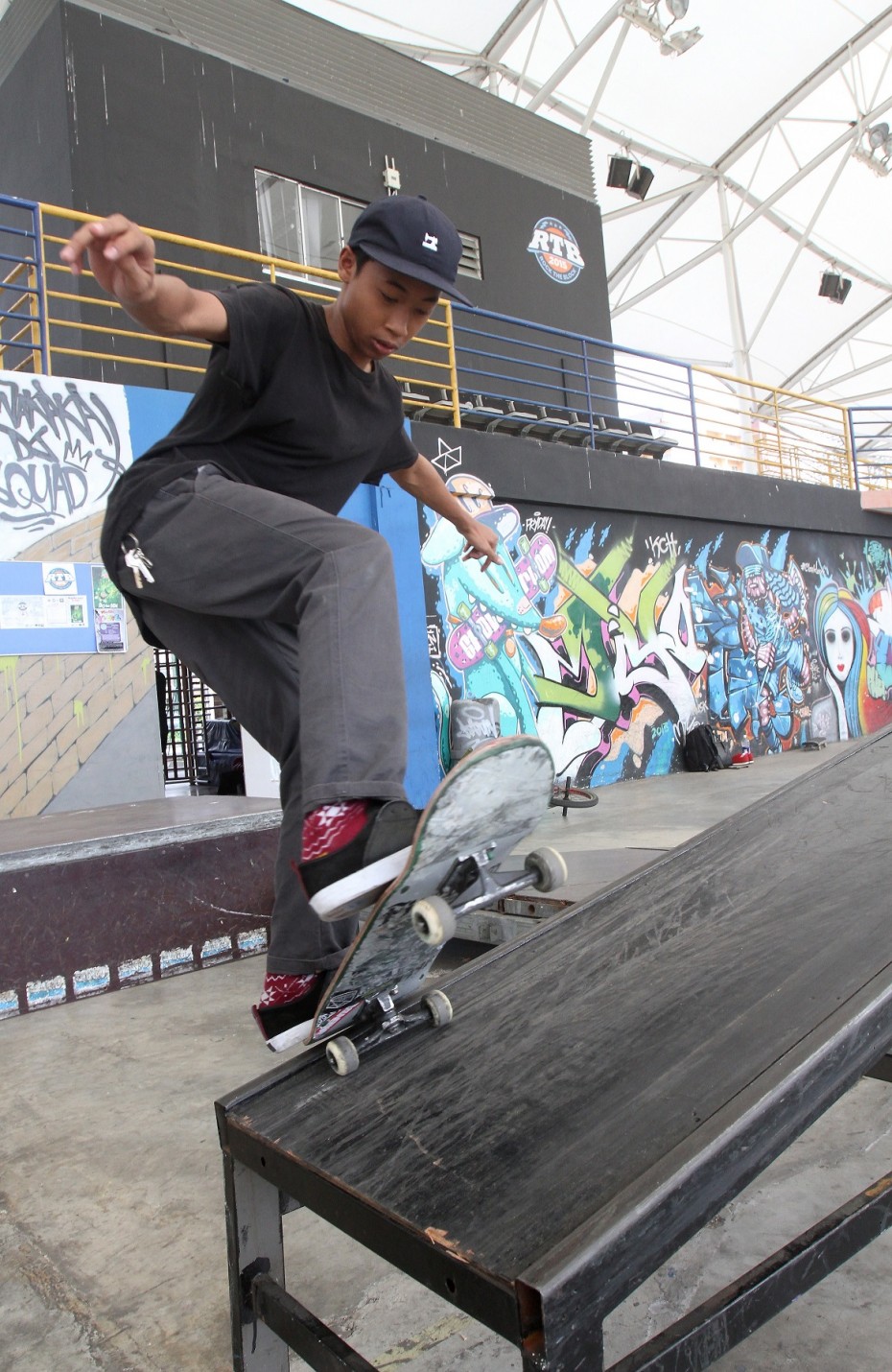
Since it’s difficult to make it in the scene, INITIATIVE encourages youth – like 14-year-old skateboarder Danial Aqmal (pictured) – to explore other skills like photography, videography and business. If they don’t make it as athlete, they can still support the industry. M. Azhar Arif/The Star 09 Apr 2015
And because the sport is always evolving, athletes are constantly trying new tricks and challenging themselves. That’s how the sport progresses.
“All we need is for the community to grow,” said Firdauz. “When more people are interested in the sport and participating in competitions and events, that’s where we see progress. That’s how we discover new talents.”

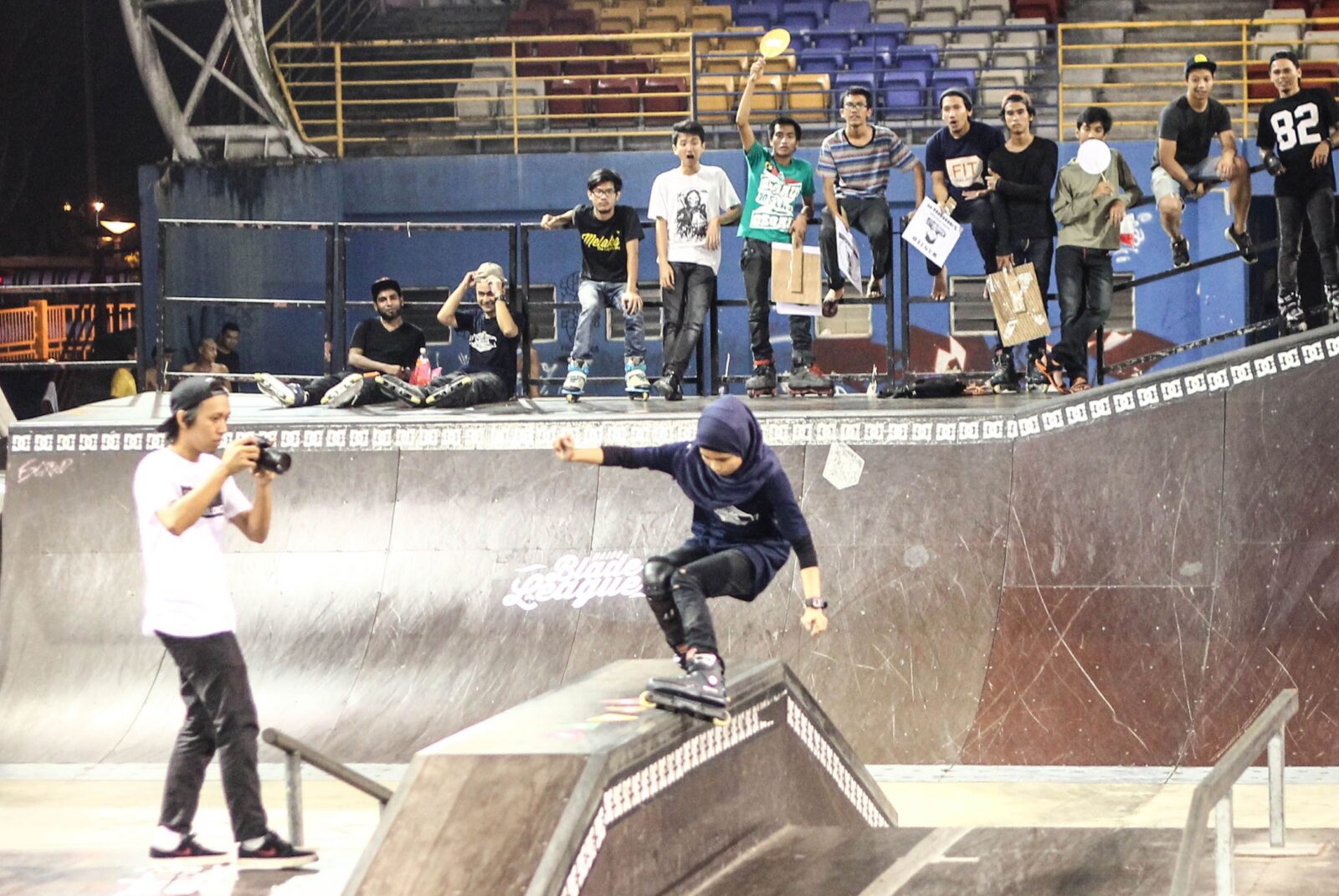





Leave a reply